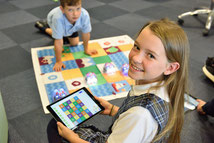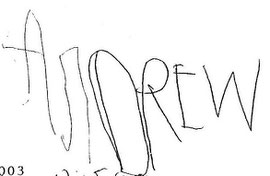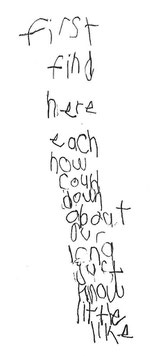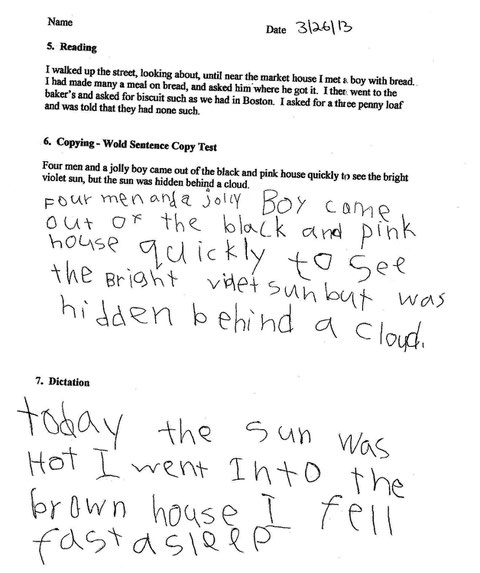Perceptual-Development Vision Therapy and Training

Dr. Lloyd Mah, OD., focuses on the diagnosis and treatment of neuromuscular and perceptual-developmental delays related to learning and reading disabilities, dyslexia, ADD, ADHD, developmental coordination disorders and acquired brain injury. Since 1981, he has developed extensive experience in diagnosing and treating neuromuscular and perceptual-developmental delays. Please contact us to book a vision therapy assessment with Dr. Lloyd Mah.
Things to Watch For In Learning Disabilities
Physical Signs
Squinting of eyes
Rubbing of eyes
Dropping of head to read
Low reading endurance
Headache
Blurred vision
Stomache upset
Functional Signs
Letter reversals
Number reversals
Skipping of words
Loss of place
Rereading of lines
Letter transpositions
Word transpositions
Poor word recognition
Poor letter recognition
Low attention
Poor comprehension
Neuromotor Control Signs
Balance is poor
Timing is off
Poor anticipation
Rhythm not satisfactory
Poor ball catching ability
Left-right confusion
Ambidextrousness
Head or body tracking
Poor eye tracking accuracy
Poor general coordination
Concussion (Acquired Brain Injury)

After concussion or trauma to the brain, an individual may find themselves inadequately recovered even after what may seem to be sufficient rest and rehabilitation. When recovery is incomplete and the individual does not regain the level of function they were at prior to the trauma, perceptual-developmental therapy is available to systematically recover brain efficiency. If you experience visual or cognitive confusion, memory lapses, balance or coordination difficulties, inability to concentrate, timing difficulties, abnormal sensitivity to light and sound, and/or continuing headaches, perceptual-developmental therapy is available to assist in your recovery.
Sample results from Developmental Training Program
Patient A.W. age 7
Handwriting before and after developmental training:

Before developmental training: A.W. Before training, A.W. is switching from one hand to the other to write. These letters are actual size. A.W. has difficulty with letter size consistency, writing in a straight line, and upper and lower case consistency.

After developmental training: A.W. After training, using one hand only to write. Letters are actual size. A.W. has better letter size consistency. He is able to write in a straighter liner. He does not have upper and lower case issues.
Patient R.A. age 8
"It was in December that I caught Dr. Mah's presentation on BCTV and made an appointment for the first week of January. Ryan's improvement was almost overnight after he began wearing his glasses. In five weeks of wearing glasses Ryan is now reading and successfully sounding out words. This is a drastic improvement. Ryan is still below grade level but rapidly catching up. Along with his reading ability, Ryan's confidence has improved drastically. He now believes that he has the ability to read. He no longer is a difficult child to handle in the class and can sit and concertrate for longer periods of time. At home, he is more willing to do homework and sit down and read to us. Ryan offers no resistance to wearing his glasses, and has verbalized that he can see better.
It has been a very frustrated process in helping Ryan to obtain reading skills. Ryan has always been a very bright and well spoken child. He has never had any social difficulties and has developed quickly in all other areas. I think this was the confusing part for everyone involved. His father and I as well as Ryan kept hearing that he had the ability to read and it would just take some time. I knew that there was something that we were missing but was unaware where to start. Ryan's improvement in his school work, attitude, self esteem and behavior is dramatic now that he is wearing glasses. "
Mother, C.A.
Patient N.C. age 8
"To whom it may concern. Since Nolan has been wearing his glasses, I have noticed that he is able to read without as much stress and fatigue. He is reading at a faster rate with fewer errors. Nolan has indicated that although he does still have some headaches they definitely occur less often than previously."
Sincerely,
Ms. S.A., Learning assistance teacher, school district 36, Surrey
Patient L.A. age 10
History: L.A. had a learning disability, reading problems, inconsistent word recognition, left-right confusion, letter reversals, loss of place, headaches, skipping of words, speech delay of 1.5 to 2 years and low general coordination. Vision was 20/20 both eyes without correction.
Findings: An underlying hyperopic refractive error causing visual strain and poor reading efficiency was found.
Results: L.A. immediately read three books after glasses were gotten. Headaches and poor reading resumed when glasses were mislaid. Achieved Most Improved Award one year later, grades at 80%.
Father, KA Yukon Territory
Patient B.J. age 7
Fine motor control, handwriting and ability to take dictation before and after developmental training:



Physical and Functional Fusion
For eyes that have difficulty working together, where one or both eyes wander inwards or outwards, it's very important that the cause be diagnosed as early as possible. If the eyes are left to operate independently, the brain begins to suppress input from the wandering eye, causing the situation to become more entrenched neurologically and ultimately more difficult to rectify.
One of the key goals in wandering eyes is to regain and to maintain physical and functional fusion. To do so requires that neurological fusion be developed which ultimately helps the eyes to stay aligned physically and functionally, instead of the opposite, to be suppressed and to continue to wander.
As an example, one of the key indicators for neurological fusion is 3D perception or stereopsis. When both eyes send images to the brain simultaneously, as would occur when the eyes are physically and functionally aligned, the brain's processing of the two overlaid images results in the perception of 3D depth. On the contrary, in the case of a wandering or suppressed eye, the brain suppresses an eye and no longer receives overlaid images simultaneously, and there is no perception of 3D depth.
We have the experience and capability of being able to diagnose binocular vision disorders and anomalies. We also have the experience required to regain and to maintain neurological fusion, the goal of which is to achieve and to maintain physical and functional fusion.
Please see us for an assessment if you have any difficulties with binocular vision.

Weak Convergence or Divergence
For eyes that possess physical and functional fusion, but that have inadequate convergence or divergence muscle control, binocular vision training is effective in improving eye muscle strength to reduce eyestrain.
As an example, when the eyes do not converge easily, eyestrain can occur while reading. As treatment, the eye muscles can be trained to increase their capacity to more easily maintain comfortable fusion.
For inadequate convergence or divergence muscle control, it is possible to diagnose and to train the eye muscles for better control and comfort.
Please see us if you have eyestrain resulting from inadequate control over convergence or divergence.
Links
College of Optometrists in Vision Development
https://www.covd.org/page/Symptoms
College of Optometrists in Vision Development: What is Vision Therapy?
https://www.covd.org/page/vision_therapy
Is it ADHD or a Vision Problem?
https://www.additudemag.com/adhd-and-vision-problems-understanding-symptoms/
